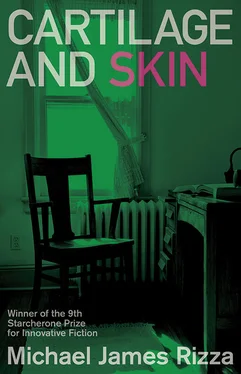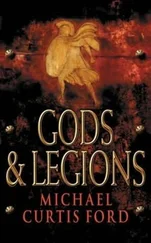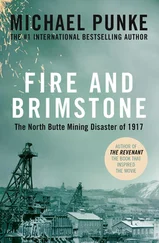IV
Before I had the time to contemplate these ideas further and drift into a new reverie, I found myself beneath the muddy green awning of a pub, which I promptly entered. The interior was deep and narrow. The bar was on the left; every stool was taken, and behind the seated patrons, more were standing. Along the opposite wall ran a thin counter that people used to abandon their empty glasses and bottles, or, by reaching backwards, to retrieve a drink, tap ashes, or snuff a cigarette. Nobody turned to look at me as I stood by the front door, wet with sweat and mist. I took off my overcoat and folded it over my forearm. I was surprised to find the place so busy at this hour. Beyond the bar area, elevated a single step, were two rows of tables. I made my way through the crowd of mostly young men and headed toward the dining area. Even though I squeezed between people, fixed my eyes upon their faces, and uttered, “Excuse me,” no one seemed to acknowledge my presence. A space cleared, providing me a sudden opportunity to belly up to the bar and order a drink. Hugging my overcoat and umbrella against my body, I was about to step forward. Yet I felt someone move behind me. In fact, just beneath the hem of my jacket, gliding across one cheek and then the other cheek of my ass, might have been either the back of a hand or the soft corner of a woman’s handbag, but I feared that this casual, accidental touch was something worse. My body tensed, and I squirmed away, not turning around to see which body and face belonged to that sausage and sack. I reached the end of the bar, where a large speaker bracketed to the wall emitted a lot of noise. Several tables were vacant. When I ascended the single stair, I turned and faced the bar again, and looking across the tops of their heads, I was intrigued that people preferred to pack together, rather than step back into the empty floor space.
“You eating?” someone asked me, shouting above the music.
“Yes,” I said.
He was a wiry young man with raven black hair, which seemed to be greased or wet. He raised his arm toward the tables and limply waved two fingers, as if to shoo me away. A squiggly black line twisted down his forearm. He said something I couldn’t hear, but I knew he was telling me to take a seat.
I found a table that had been robbed of all its chairs but one. I set my umbrella on the floor beside the chair and sat down with my overcoat in my lap. Some laminated menus were propped between the salt and pepper shakers and a napkin dispenser. I read a menu, though I already knew what I wanted. When the waiter finally came over and took my order, a look of annoyance came over his face.
“What kind of beer?” he asked.
“Oh, what do you have on tap?”
He drew a breath and began to rattle off a list of words, a jumble of sounds. I cocked my head, as if I were interested.
“What was that last one?” I asked, but before he even got out the name, I said, “That sounds good.”
He disregarded me at once and walked away.
Even though I knew I was overdressed, too old, and solitary, I resisted the urge to feel displaced. I tried to act at ease, so I took my damp overcoat from my lap, bundled it up, and put it on the table. Then I wiggled out of my jacket, hung it from the back of the chair, and unbuttoned the cuffs of my shirt. Years ago, in my silly and benumbing baccalaureate days, I used to attempt to give myself a dab of charm and grace by pretending to be a dashing ivy-league man. I often wanted to impersonate F. Scott Fitzgerald, but because I knew very little about the writer himself, I had to settle for such characters as Jay Gatsby and Dick Diver. Now, sitting at the table, waiting for my order, this old desire to emulate someone else returned to me. I remembered the scene when Dick Diver was sitting in a bar surrounded by his cronies. He had just secretly performed a handstand in his room, to give a little color to his face, and now he was leaning back with a drink in his hand, while his company paid him homage; they were scanning the establishment, looking to see if anyone in the whole room had as much repose as Dick, but no one there could match his elegance. As I looked about the bar, at all the goofy, eager, boisterous young men, I realized that not one of them had the romantic equanimity of a cultured lover, and furthermore, none of them cared to have it. They didn’t bother with refined manners and tastes, and perhaps most young men never did, even in Fitzgerald’s time. Why make such an elaborate show when they could expose their desires as plainly as a pack of rutting dogs slobber and howl?
The waiter brought me a plastic basket of french fries and a glass of something thick and black. When I looked up at him, to question what was in the glass, I noticed that the tattoo that wound up his arm and disappeared under his shirtsleeve, apparently spread over the rest of his body in some mysterious fashion and peeped up around the edges of his shirt collar. Not saying a word, I simply looked at his shiny, black eyes, but still he seemed to become very annoyed with me. He waited a second and then stepped away. Whether he acted like a bitter, ugly thing to all the patrons or just to me didn’t matter; I decided not to leave a tip unless he showed a glimmer of warmth the next time he came to my table.
I sipped my beer and found it tolerable. The french fries were thick-cut, salty, and soggy. Even so, I ate and drank and watched the people seated in the dining area, since my back was toward the bar. The couple sitting in front of me appeared to have only recently met because the young man was interrogating the girl, who looked like a delicate creature, with soft bare shoulders and auburn hair. His words were abrupt and quick, swarming all over the girl. Unfortunately, rather than a frontal view of her, I had one of his cherubic face, which was round, pink-cheeked, and coated with a closely trimmed beard.
Through his questioning, I learned that she was the youngest of three girls and, because of the decade or so separating her from her sisters, she was a “change of life baby” or, as her dopey date interjected, “an accident.” I couldn’t see her expression, but a slight, telling pause in her voice preceded her correction: she was “definitely planned.” In fact, she was lucky to have been born later because by then, her parents were already established in life. While her sisters had “to play with pots and pans and to make toys out of sticks and mud,” she got everything she wanted. Just as I was beginning to appreciate the young woman’s wit, the bearded boy felt compelled to interrupt.
“A spoiled little girl.”
He grinned stupidly and babbled on. He used his fork to punctuate his sentences in the air, and although she started to say that even in childhood she’d “never really cared for material things,” he began another line of questioning. He wanted to know what she intended to do with a degree in English. He asked this in a roundabout way, not only implying her impracticality but also alluding to the spoiled little girl theme. Beneath the flourish of his words and the humor in his tone, he in essence accused her of having the comfort of getting a useless degree because she planned on being supported by a happy husband. It took him a while to get to the point because he somehow connected it to, or rather veiled it within, an anecdote about his cousin’s ex-fiancé. She let him finish, before simply calling her education “a pleasant stepping stone” to law school. She had wanted to be a lawyer ever since she’d read about Atticus Finch and Sol Stein’s magician in ninth grade.
The inflection in her voice suggested that this subject thrilled her. She clearly wanted to continue talking about her plans, such as what law schools interested her and also what branch of law. Yet the buffoon swallowed whatever was in his mouth, set down his fork, and looked seriously at the girl.
Читать дальше












